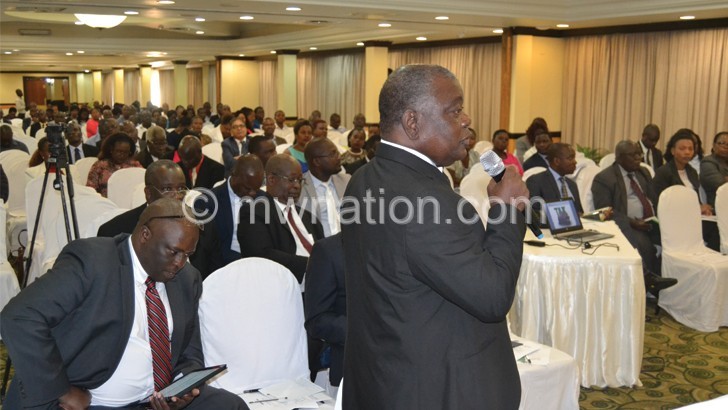Treasury outlines 2018/19 budget
Treasury has given an outline of the forthcoming 2018/19 National Budget projected at between K960 billion and K1 trillion that it will focus more on youths with emphasis on employment and training.
Secretary to the Treasury (ST) Ben Botolo gave the hint during the launch of the 2018/19 Pre-budget Consultations Meetings in Blantyre yesterday.
He said: “The 2018/19 National Budget has to respond to all sectors of the economy. As we are doing this, we will be crafting a budget which will be very responsive to the youth to make sure we tackle the issue of employment, get jobs for the youth and train them

“We notice that the economy has attained significant stability with inflation maintained at single digit. However, in 2018/19 we should pursue national policies that aim at attaining economic growth, the guiding blueprint being the Malawi Growth and Development Strategy [MGDS] III.”
Botolo said government has set out the macroeconomic targets, fiscal and monetary policy measures and debt sustainability targets to be achieved by the end of the fiscal year.
In his contribution, Economic and Tax Committee of the Institute of Chartered Accountants in Malawi (Icam) chairperson Andrew Chioko, while cautioning government to monitor expenditure and debt, said electricity outages and erratic water supply remain a challenge to the 2018/19 National Budget implementation.
“If you look at government, there is a tendency to spend on things that are not necessary. There was an outcry last year where government bought very expensive vehicles, if we had saved on those vehicles, and bought less expensive vehicles, those funds could have been utilised and channelled to other important sectors such as health and agriculture,” he said.
The projected K1 trillion budget will be lower than the K1.3 trillion in the current financial year ending on June 30.
But Chioko said the reduction in the 2018/19 budget was expected following the poor performance of domestic revenue collection in the 2017/18 financial year.
He attributed the country’s poor domestic revenue performance to the energy crisis being experienced with no end in sight.
Said Chioko: “It [the downward revision] is expected in the sense that if you look at the way the economy has performed. The lack of consistent supply of electricity, water problems and the cost of doing business has increased. Manufacturing companies have not done well.
“So, obviously you can see a reduction in profits with a result decrease in taxes from MRA [Malawi Revenue Authority]. I presuppose that in terms of losers or winners, I don’t expect a decrease in tax deductable issues. I should not expect a decrease in tax rates because the pool we have is limited because there is a limitation to what government can push considering the limited base.”
International Labour Organisation (ILO) statistics put youth unemployment rate in Malawi at 23 percent, slightly higher than the national unemployment rate which is pegged at 21 percent.
On the other hand, figures from the African Development Bank (AfDB) show that 50 percent of the youth in Malawi are projected to be unemployed by 2025 going by the recent increase in unemployment.





